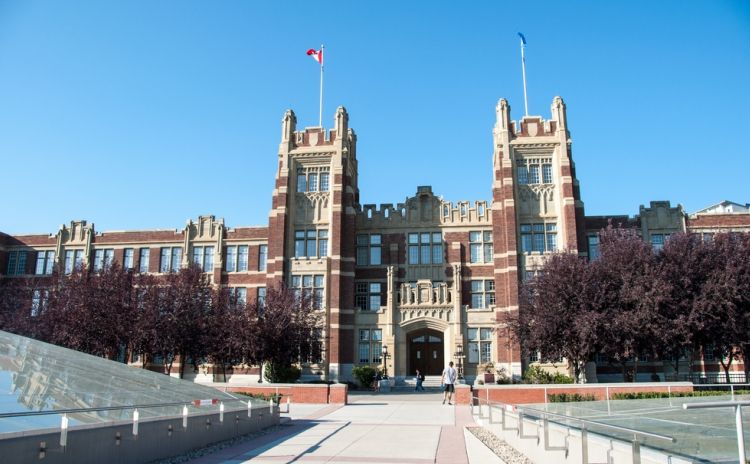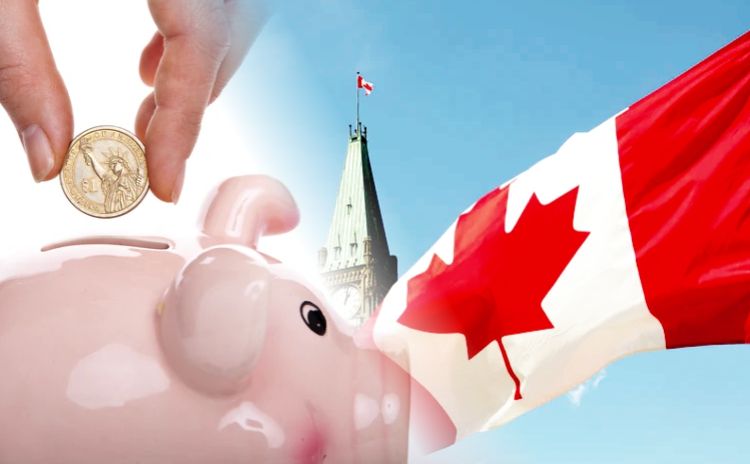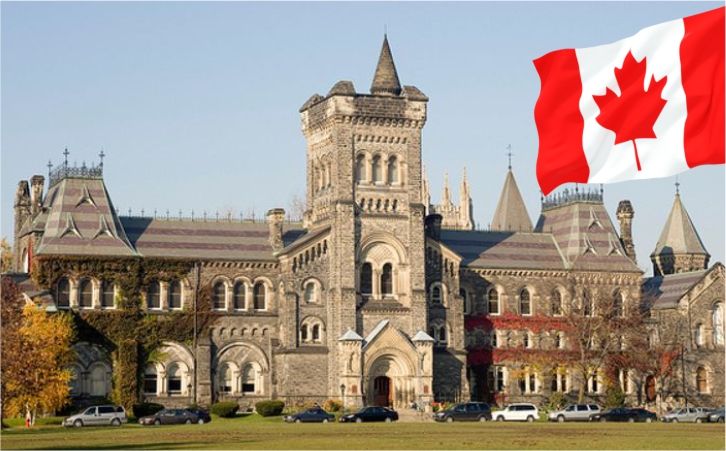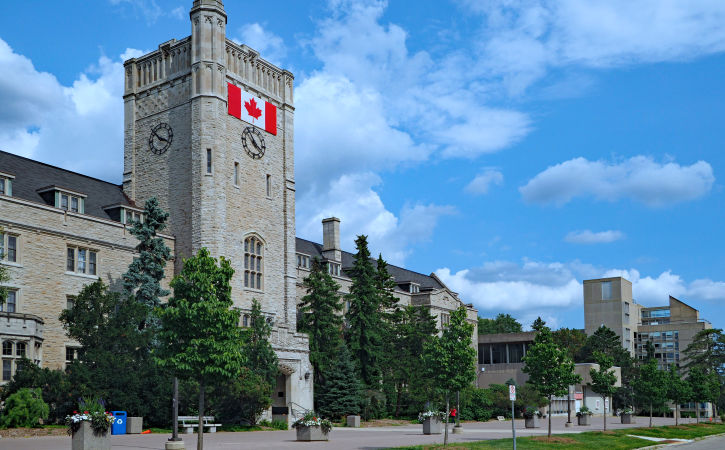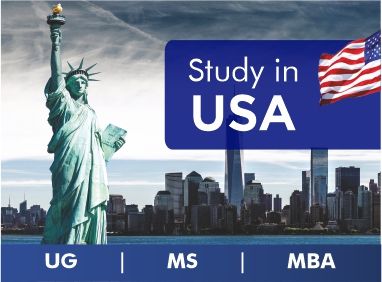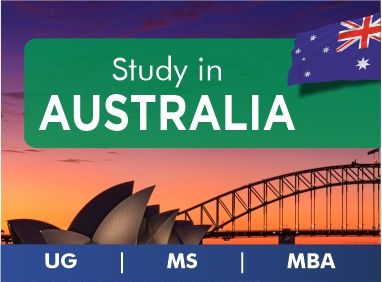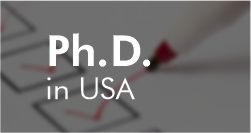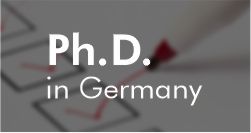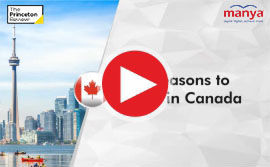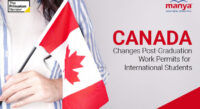
Why Study Ph.D. in Canada?
Let’s Look at the Numbers!
- As per QS World University Rankings 2023, 3 Canadian universities are in the top 50 list – the University of Toronto (Rank 34), McGill University (Rank 31) and the University of British Columbia (Rank 47).
- In Canada, the University sector is the 2nd largest research driver in the country after the private sector.
- Fortune Magazine has named Toronto the best international city to live in.
Following are some reasons to study PhD in Canada for international students:
Globally Recognized Degree: There are 3-4 universities in Canada for PhD that rank among the top 150 in the world. These top-ranked Canadian universities provide world-class research facilities as well as teachers with the most up-to-date academic expertise.
Post-study opportunity: After completing your Ph.D. programs in Canada, you can stay for up to three years through the PGWPP. After which you can apply for permanent residency in Canada.
Affordability: In Canada, the cost of earning a Ph.D. ranges from 4,000 to 19,000 CAD. When compared to other destinations to study abroad such as the United States and the United Kingdom, this is significantly low.
Scholarships: There are a number of Ph.D. scholarships in Canada for international students. Ontario Trillium Scholarships, Vanier Canada Graduate Scholarships, Ontario Graduate Scholarships, and others are among the most popular scholarships. Some of these scholarships include a yearly stipend of 15,000 to 40,000 Canadian dollars.
Work-study opportunities: During the academic year, PhD students in Canada can work for 10 hours every week. This enables you to fund and sustain your everyday costs while learning and getting experience in the field.
Ph.D. in Canada: Highlights
| Duration | 3-6 years |
| Research Universities | Around 100 |
| Academic Year | September to April |
| Fees | 4,000 to 19,000 CAD |
| Funding up to | Up to 40,000 CAD a year |
| Work-study opportunities | 10 hours a week |
| PGWP duration | At least 3 years |
Academic Year for Ph.D. in Canada
The academic year in Canada begins from September to April, but semester dates vary by province and university.
Top Canadian University Rankings for Ph.D. in Canada
| University of Toronto | 31 |
| University of British Columbia | 47 |
| McGill University | 31 |
| McMaster University | 152 |
| University of Montreal | 116 |
| University of Alberta | 110 |
| University of Ottawa | 237 |
| University of Calgary | 242 |
| Simon Fraser University | 13 |
| University of Waterloo | 154 |
| Western University | 172 |
| Dalhousie University | 12 |
| Universitié Laval | 433 |
| Queen’s University | 216 |
| University of Manitoba | 651-700 |
| University of Victoria | 359 |
| York University | 162 |
| University of Guelph | 591-600 |
| University of Saskatchewan | 465 |
| Carleton University | 601-650 |
Universities Within Canadian Provinces and Territories
Because of its huge geographic size and colonial past, Canada has evolved a federal structure consisting of ten provinces and three territories. Provinces are self-governing sovereign entities (equivalent to states in the United States), whereas territories are governed by the federal government.
Here is the list of the 10 Canadian provinces:
- Alberta
- British Columbia
- Manitoba
- New Brunswick
- Nova Scotia
- Newfoundland and Labrador
- Ontario
- Prince Edward Island
- Québec
- Saskatchewan
Best Cities to Study in Canada
Here is the list of some best cities to study in Canada:
- Study in Montreal
- Study in Québec City
- Study in Edmonton
- Study in Vancouver
- Study in Toronto
Research Universities and Graduate Schools
In Canada, there are approximately 100 research universities. These universities frequently hold their doctoral programs in specialized graduate schools that have all of the necessary resources and expertise to let students complete advanced postgraduate (or ‘graduate’) degrees. Depending on how they are funded, Canadian universities can be either public or private. Public universities (the majority) are funded by their respective provinces or territories and tend to provide a broader range of academic options, including doctoral programs. Private universities are smaller as well as more specialized and are sponsored by third-party sources.
Are You Planning to Pursue Ph.D. in Canada?
Click Here to Book Your Free 1-On-1 Session with Experts
Eligibility Criteria for Ph.D. Programs in Canada
| Strong Academic Credentials | Standardized Test Scores | Strong Academic Profile |
|---|---|---|
| Master’s degree in relevant field with minimum grades required completion of specific prerequisite courses | Competitive GRE score in some universities Many universities require GRE Subject Test scores as well as TOEFL/IELTS | Academic & Research projects, Internships and/or publications/work experience |
As a PhD aspirant, you need to properly network with a professor (supervisor, mentor) who has accepted to supervise your research and thesis work. The first step is to send out networking letters to professors whose areas of expertise match your interests and then wait for their reply.
A student who wants to pursue PhD programs in Canada must meet the eligibility criteria mentioned below:
- Master’s degree with excellent academic records
- Strong GRE or GMAT score
- Scores of language proficiency test:
- IELTS: 6.5
- TOEFL: 100 (iBT) , 600 (pBT)
Know more about Entry Requirements for Canadian Universities.
Powerful Reasons to Study in Canada
| Top-notch Education & Curriculum | Most Flexible Education System | Extensive International Exposure | Thriving Campus Life | Relaxed Immigration Laws & Stable Economy |
|---|---|---|---|---|
| Quality of education at par with that of the USA | Ph.D. supported by government and industrial sector collaborations | Diverse class | Student clubs/organizations | Immigration friendly; Post-study stay back option of 3 years |
| Most sought-after research destination Management Accounting | Ph.D. Scholarships available are higher than in other nations | Cross-cultural exposure | Focus on ECA | A strong economy with the low unemployment rate |
Related Blog: Top Reasons to Study in Canada.
Popular Ph.D. Courses in Canada
Following is the list of popular courses to study Ph.D. in Canada for Indian students:
- Natural Sciences & Mathematics
- Social Sciences
- Humanities
- Medicine & Health
- Business & Management
- Engineering & Technology
- PhD in computer science in Canada
- Agriculture & Forestry
- Applied Sciences
- Environment and Earth Sciences
Cost of Education for Ph.D. in Canada
| Duration | Cost of Education per annum (Tuition Plus Living) |
|---|---|
| Usually between 3-4 years, Occasionally it might become longer. | Living Costs: CAD 15,000-20,000 per annum.
Funding beyond 6 years becomes limited Cost of Education in Canada per annum (Tuition Plus Living) |
Financial aid is available from universities as part of acceptance to Ph.D. programs. This financial aid can come as graduate assistantships in varied forms, including teaching and research assistantships, fellowships, and/or tuition waivers.
The Vanier Canada Graduate Scholarship award, for example, comes in at CA$50,000 (~US$37,210) per year for highly qualified international and local Ph.D. students in the fields of social sciences and/or humanities, natural sciences and/or engineering and health.
The Pierre Elliott Trudeau Foundation doctoral scholarships award $40,000 (~US$29,770) per year for three years to Canadian citizens and foreign students -with applications particularly welcomed from students from developing countries.
The University of British Columbia Four Year Doctoral Fellowship meanwhile, provides a stipend of at least CA$18,200 (~US$13,545) per year plus full tuition for outstanding international/home doctoral students for all four years of their studies.
Ph.D. Course Duration in Canada
Some Ph.D. programs in Canada last 2-3 years, while others last up to ten years, it is heavily dependent on the type of university you will attend and the field you will pursue.
- Management: 4 years
- Accounting: 4 years
- Organization Studies: 5 years
- Finance: 4-5 years
- Industrial Engineering: 4 years
- Civil Engineering: 3 years
- Philosophy: 4 years
- Social Sciences: 4 years
- Anthropology: 2-3 years
- IT: 3-4 years
PhD Program Structure
The doctorate in Canada is typically the last ‘terminal degree,’ or the greatest level of academic certification that a student can achieve after earning a bachelor’s degree and a master’s degree.
Along with the traditional academic Ph.D., a variety of doctoral degrees are offered, including professional doctorates such as the Doctor of Business Administration (DBA) and Doctor of Education (EdD).
Supervision and Research for Ph.D. in Canada
Your Ph.D. will be completed under the supervision of at least one academic supervisor. They’ll be an expert in your overall subject and field. Other members of your graduate school may assist you with supervision and training, especially if your degree requires additional classes and coursework. The completion of a Ph.D. thesis will be the primary criterion of your degree. If you are pursuing a professional doctorate degree, such as a DBA or an EdD, you will have to concentrate on practical work and case studies along with your academic research. A thesis will still be required, although it may be shorter and complemented by other resources.
Assessment and Examination for Ph.D. in Canada
The originality and quality of your doctoral thesis are the major factors for evaluating a Canadian Ph.D.
After you submit your thesis, it will be read and considered by a committee of examiners (which will include at least one external expert). After that, you’ll have a verbal presentation of your thesis.
This process may be slightly more involved than viva voce, which is commonly done in the United Kingdom and elsewhere. Instead of discussing your work in a room,’ you may be expected to give a presentation about your research before being questioned about its content and significance.
The examiners will next meet separately to determine whether or not you performed well on the examination and if you have performed well then you will be awarded your PhD.
Admission Requirements for Ph.D. in Canada
A Master’s degree in a relevant field is usually the minimal PhD requirement in Canada. PhD admission in Canada can be quite tough. Students frequently take classes and modules together, and graduate institutions only accept a specific number of students each year. This means that your previous academic achievements will be examined carefully.
GPA Scores for Ph.D. in Canada
Instead of just providing your final degree result, you will be asked to offer a Grade Point Average (GPA) score. The GPA system is widely used in the United States and Canada (as well as a few other nations), although it is less widespread in the United Kingdom and Europe. It gives you a more comprehensive picture of your total performance over the course of your studies.
A GPA of 3.0 or better is usually required for admission to a Canadian PhD program.
Graduate Admissions Tests for Ph.D. in Canada
As part of your application, you may be asked to submit a score from the Graduate Records Examination (GRE) or the Graduate Management Admissions Test (GMAT). This allows universities to evaluate applicants’ readiness for higher graduate work and, in some cases, choose between candidates with similar academic histories.
Specific criteria (and expected scores) differ per university and graduate school, so double-check ahead of time.
Language Requirements for Ph.D. in Canada
You can consider the following language proficiency test for pursuing a Ph.D. program in Canada:
- IELTS
- TOEFL
Student Visas in Canada
Canada is a kind and friendly country that is keen to attract international students. Its student visa and immigration systems reflect this.
To enter Canada as a student and stay for your PhD, you’ll typically require two documents:
• Electronic travel authorization
• Study Permit
Check Your Score Now with a Free Practice Test
See where you stand with our practice tests. Find the right way to improve with our strategy sessions.
Applying for an Electronic Travel Authorization (eTA)
The majority of overseas students will require permission for studying in Canada. You can obtain this by submitting an application for an Electronic Travel Authorization (eTA). This document serves as your visa, allowing you to enter Canada. The application process for an eTA is convenient and it is done online.
Along with your passport information and payment details, you would need to pay a fee of CAD 7 It’s important to note that while your eTA permits you to enter Canada, it doesn’t give you the right to stay there for the duration of your PhD. To do so, you must first apply for your Study Permit.
Cotutelle Programs in Canada
In addition to the traditional Ph.D. process, several Canadian universities collaborate with other international schools to offer a ‘cotutelle’ (French for ‘co-tutored’) route to a Ph.D. These programs require students to spend time at two distinct universities, each of which supervises, examines, and awards the Ph.D. project. A cotutelle agreement, unlike some other joint PhDs, is usually tailored to the student’s thesis rather than a long-term cooperation between two (or more) universities.
This option may or may not be available at each Canadian university. It is recommended to contact the University for More Information.
A Sneak Peek into the Ph.D. Application Process in Canada
The following documents are required:
- College Transcripts
- Detailed Resume
- Scanned Copy of the Passport
- Some universities additionally ask for a research proposal
- Application Form
- Statement of Purpose
- Letters of Recommendation
Learn more on How to Apply for PhD Abroad.
Intake & Application Deadlines for PhD in Canada
Canadian PhDs follow a 3-semester deadline system
- Fall (September to December)
- Winter (January to April)
- Summer (May to August)
The funding available to study in Canada is maximized for autumn, so it is preferred over the other two-semester intakes. The deadlines are different for all universities; nonetheless, the commencement dates for applications are more or less in September.
Know more about the Upcoming Intake to Study in Canada.
Student Visa Terms and Provisions for PhD in Canada
International students need study permits to pursue their PhD in Canada. You must submit a visa application online, and submit relevant documents to the VFS office. Additionally, an acceptance letter from the specific department of your university, proof of adequate funds, and a cover letter to the Canadian High Commission are also required.
Usually, students need to commit to specific hours of teaching or research as part of their assistantships and are generally not allowed to preoccupy themselves with any other form of employment on or off campus. Post-degree, a work permit must be applied for within 90 days and the student must carry a valid study permit to acquire this work permit.
Related Blog: Things to Consider Before Pursuing a Ph.D Abroad
How to Apply for Ph.D. in Canada?
Decide the Type of Ph.D. Course you Want to Pursue
You can pursue structured or open Ph.D. programs in Canada. The research studies for the Structured Ph.D. program are determined by the university. For an Open Ph.D., you must propose and outline your own research subject.
You must choose a supervisor for one of the two courses who will guide you through the research process. Some colleges may require a letter of support from your supervisor in addition to your application.
Submit Research Outline
If you want to pursue open PhD programs in Canada, you’ll need to submit a research proposal outlining the scope of your subject and its relevance in today’s world. The proposal must be written in accordance with the university’s research requirements.
Apply Online and Submit Relevant Documents
Submit your application online with the university of your choice and pay the application fees. While submitting your application, make sure that you are submitting all the required documents in the correct sequence and order. Following is the list of documents that are generally required for PhD courses in Canada:
- Statement of Purpose
- Academic transcripts
- Score of language proficiency test
- LOR
- CV
- Portfolios (if required)
Give the Interview
Some universities in Canada conduct virtual interviews before selecting you.
Get Your Study Permit
After receiving your letter of acceptance you must start applying for a study permit. Following is the list of documents required for applying for study permit in Canada:
- Health insurance
- Proof of sufficient funds
- Medical certificate
- Acceptance letter from the university
- Language proficiency test results
- The intention of leaving back to home country
Are You Planning to Pursue Ph.D. in Canada?
Click Here to Book Your Free 1-On-1 Session with Experts
Tuition Fees for Ph.D. in Canada for Indian Students
Fees for Ph.D. programs in Canada typically range from CAD $2,500 to $17,000 per year, while certain programs of Ph.D. in Canada cost up to CAD $25,000.
Recent Fee Changes for International Students
From 2018, local and international Ph.D. students at the University of Toronto will be charged the same fees. This implies that you’ll pay the same as a local Canadian student for your Ph.D.
Brock University has started covering international Ph.D. expenses through its own grants.
Following is the list of Ph.D. fees in Canada at the top universities:
| University Name | Tuition Fees in INR (yearly) |
| University of Toronto | 4.9 lakhs |
| University of British Columbia | 4.8 lakhs |
| McGill University | 10.6 lakhs |
| McMaster University | 8.9 lakhs |
| University of Montreal | 4.1 lakhs |
| University of Alberta | 5.1 lakhs |
| University of Ottawa | 3.8 lakhs |
| University of Calgary | 7 lakhs |
| University of Waterloo | 7.4 lakhs |
| Western University | 6.2 lakhs |
Ph.D. in Canada Scholarships
There are a number of top universities in Canada for PhD. Following is the list of most renowned scholarships to study PhD in Canada for Indian students:
- Ontario Trillium Scholarship: 40,000 CAD a year (renewable)
- Ontario Graduate Scholarship: 15,000 CAD
- Robert Hartog Graduate Scholarship: 5,000 CAD (renewable)
- UAlberta Izaak Walton Killam Memorial Scholarship: 45,000 CAD (for two years)
- The University of Manitoba Graduate Fellowship: 18,000 CAD per year
- UBC four-year Doctoral Scholarship: 18,200 CAD per year (stipend)
- Pierre Elliott Trudeau Foundation Doctoral Scholarship: 40,000 CAD
- Ontario Graduate Fellowship: 12,000 CAD (renewable)
- Hira and Renu Ahuja International Graduate Scholarship: 20,000 CAD
So, these were some Ph.D. scholarships in Canada.
Government Scholarships for Indian Students in Canada
Following is the list of government scholarships to study PhD in Canada for Indian students:
- IDRC Research Awards
- Vanier Graduate Scholarships
- Ontario Trillium
Non – Government Scholarships for PhD in Canada
Following is the list of non-government scholarships to study PhD in Canada for Indian students:
- Anne Vale Ecological Fund
- Canada Memorial
- Trudeau Scholarship & Fellowship
Other Funding Opportunities for PhD in Canada
Teaching/Research Assistantship: In a research assistantship, you would have to assist a faculty member with data collection, lab organization, report writing, analysis, and other tasks.
Work-Study: With a study permit, you can work for ten hours per week while pursuing your PhD in Canada. The government sets the salaries for part-time employment to ensure that everyone receives a minimum wage.
Ph.D. in Canada Without IELTS
English proficiency is required for Ph.D. admission in Canada. Most major colleges require EILTS, while many university courses do not require IELTS scores.
Following is the list of some universities that allow students to pursue PhD in Canada without IELTS:
- University of Winnipeg
- University of Saskatchewan
- University of Regina
- Brock University
- Memorial University
Ph.D. in Canada Without GRE
Despite the fact that many institutions require GRE scores for Ph.D. admission in Canada but there are some universities in Canada that do not require GRE scores.
Following is the list of some universities that allow students to pursue Ph.D. in Canada without the GRE:
- Trent University
- Lake head University
- Laval University
- Carleton University
- Royal Roads University
- Laurentian University
Ph.D. in Canada Without GMAT
A GMAT score is required for pursuing Ph.D. in management in Canada. The GMAT is needed by nearly all major universities. On the other hand, several universities do not require the scores of GMAT.
Following is the list of some universities that allow students to pursue PhD in Canada without GMAT:
- University of Winnipeg
- University of Saskatchewan
- University of Regina
- Brock University
- Memorial University









